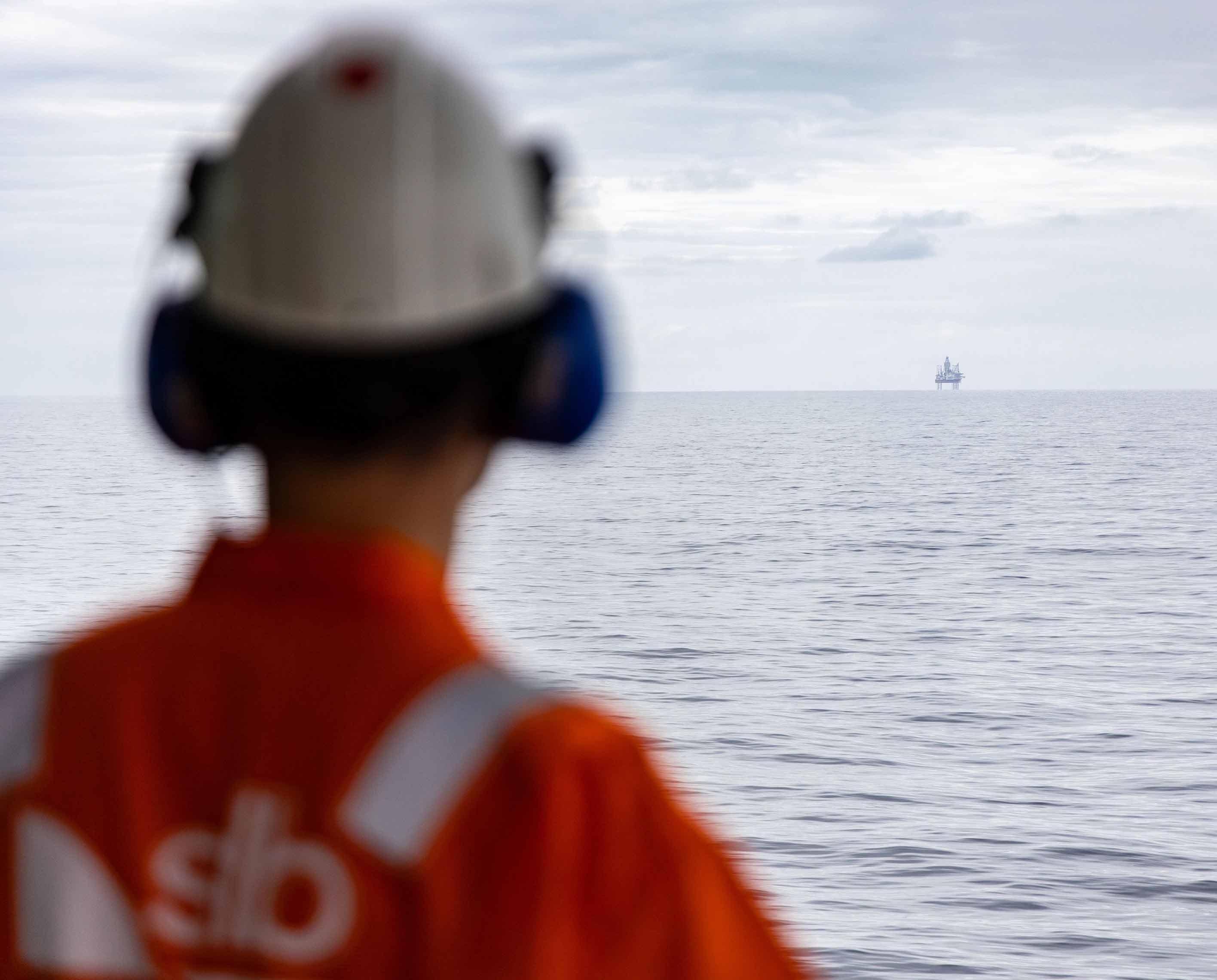Carbon storage well design and construction
Designing and constructing CCS-specific wells to withstand the test of time


All wells are not created equal
Developing a carbon storage site requires careful consideration of three types of wells: injection wells, monitoring wells, and legacy wells—or sometimes all three. Injection wells, in particular, must be specifically designed to withstand the unique supercritical state, temperature, pressure, and corrosiveness of CO2.
At SLB, we draw on decades of experience from more than 150 CCUS projects to design and construct carbon storage injection wells with precision and reliability. Our process includes analyzing site-specific surface and offset well data, crafting a well architecture aligned with the injection plan, verifying integrity under expected pressure, temperature, load, and stress conditions, selecting appropriate materials, and more.
We manage every aspect of your CCS well design and with SLB's Sequestri™ carbon storage solutions portfolio, we’ve engineered and qualified more than 50 technologies for CCS application, giving you peace of mind and confidence in your project’s long-term success.
Well-specific design
We handle every detail and estimate costs for you, including designing the optimal trajectory based on surface location, subsurface targets, anticollision constraints, and specific design limits. We define the cement system for each borehole section and its density, specify the casing and tubing requirements, and determine the type of upper and lower completion. We also help you select measuring, monitoring, and control devices to be installed and select materials with the guidance of a metallurgy expert. Our focus on the finer details enables you to concentrate on overall project development.
Well construction solutions
Drilling precision lies at the core of our expertise and legacy. Building reliable, high-integrity CCS wells demands the right technologies and approaches. We’ve developed solutions tailored specifically to the unique demands of carbon storage. These include innovations like the EverCRETE™ CO2-resistant cement system, Metris Evolve permanent pressure and temperature gauge, and Integrity™ CCS subsurface safety valves, which ensure durability and performance under the challenging conditions of CO2 sequestration.
In addition to these advancements, we’ve qualified nearly 50 technologies for use in CO2 storage-specific activities, expanding the possibilities for safe and efficient operations. Our integrated solutions are designed to guide every step of your carbon injection well journey—from planning through execution. We are committed to building wells that excel even in the most demanding environments, and our efforts to qualify additional technologies mean that we’re always staying ahead of the curve for your carbon storage needs.
Remediation
Existing or legacy wells within your storage complex that may be affected by the CO2 plume or pressure front can pose potential leakage risks. To address this, our experts conduct comprehensive well integrity assessments to evaluate and prioritize these wells for abandonment, reabandonment, or remediation. This proactive approach helps prevent the unintended migration of fluids caused by CO2 injection, ensuring the integrity and safety of your storage project.
Class VI or CCS well permitting
Regardless of the jurisdiction where you are filing a permit for your CCS well, our carbon storage well construction experts can help ensure that your CCS well is compliant with local regulations. Based on our global best practices and experience, we assist you in covering all the requirements for your submission, even where the regulations don’t yet exist.

Be storage confident
Other carbon storage solutions
Carbon storage site evaluation
In-depth analysis to evaluate your carbon storage project
Carbon storage injection operations, measurements, monitoring, and verification
Cost-effective CO₂ injection planning and management
Carbon storage well design and construction
Designing and constructing CCS-specific wells to withstand the test of time
Carbon storage regulatory permitting
Regulatory permitting for Class VI or CO₂ injection wells





